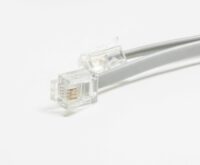Running a small business can be both exciting and challenging. As a business owner, you have the freedom to pursue your passion and make your mark in the industry. However, managing the financial aspect of your business is crucial for its growth and long-term sustainability.
The Importance of Small Business Finance
Effective financial management is the backbone of any successful business. It allows you to make informed decisions, allocate resources wisely, and plan for the future. Here are some essential tips to help you navigate the world of small business finance:
1. Create a Detailed Budget
A budget is a roadmap for your business’s financial success. It helps you track income, expenses, and cash flow. Start by listing all your fixed and variable costs, such as rent, utilities, salaries, and inventory. Set realistic revenue goals and monitor your progress regularly.
2. Separate Personal and Business Finances
One common mistake many small business owners make is mixing personal and business finances. Open a separate bank account for your business and use it exclusively for business-related transactions. This will make it easier to track expenses, prepare taxes, and maintain accurate financial records.
3. Monitor Cash Flow
Cash flow is the lifeblood of your business. It’s important to keep a close eye on your cash flow to ensure you have enough funds to cover expenses and invest in growth opportunities. Create a cash flow statement to track the inflow and outflow of cash and identify any potential shortfalls.
4. Manage Debt Wisely
While taking on debt may be necessary for business growth, it’s important to manage it wisely. Avoid accumulating excessive debt that could burden your cash flow. Explore different financing options and compare interest rates and terms before making a decision. Develop a repayment plan to stay on top of your obligations.
5. Embrace Technology
Technology has revolutionized the way businesses manage their finances. Take advantage of accounting software, budgeting tools, and mobile payment solutions to streamline your financial processes. Automating tasks like invoicing, expense tracking, and payroll can save you time and reduce the risk of errors.
6. Seek Professional Advice
Managing finances can be complex, especially if you’re not a financial expert. Consider working with an accountant or financial advisor who specializes in small business finance. They can help you navigate tax laws, optimize your financial strategies, and provide valuable insights to support your growth.
7. Continuously Monitor and Evaluate
Financial management is an ongoing process. Regularly review your financial statements, analyze key performance indicators, and adjust your strategies accordingly. Stay informed about industry trends, economic changes, and regulatory updates that may impact your business.
Conclusion
Small business finance is a critical aspect of running a successful enterprise. By creating a detailed budget, separating personal and business finances, monitoring cash flow, managing debt wisely, embracing technology, seeking professional advice, and continuously evaluating your financial performance, you can position your business for growth and long-term sustainability.
Remember, financial management is not a one-time task but an ongoing commitment. Stay proactive, adapt to changing circumstances, and make informed decisions to ensure the financial health of your small business.



 Digital Twins in Manufacturing: A Revolution in Production
Digital Twins in Manufacturing: A Revolution in Production  Boost CX with Augmented Reality: Your Ultimate Guide
Boost CX with Augmented Reality: Your Ultimate Guide  Headless Commerce Explained: Is It Right for Your Brand?
Headless Commerce Explained: Is It Right for Your Brand?  Quantum Computing’s Potential: A Business Guide
Quantum Computing’s Potential: A Business Guide  Prepare Your Business for a Black Swan Event: A Guide
Prepare Your Business for a Black Swan Event: A Guide  Build a Business That Runs Without You: A Founder’s Guide
Build a Business That Runs Without You: A Founder’s Guide  Backtest Crypto Trading Strategies: A Complete Guide
Backtest Crypto Trading Strategies: A Complete Guide  NFT Standards: A Cross-Chain Guide for Creators & Collectors
NFT Standards: A Cross-Chain Guide for Creators & Collectors  Decentralized Storage: IPFS & Arweave Explained Simply
Decentralized Storage: IPFS & Arweave Explained Simply  How to Calculate Cryptocurrency Taxes: A Simple Guide
How to Calculate Cryptocurrency Taxes: A Simple Guide  Your Guide to Music NFTs & Top Platforms for 2024
Your Guide to Music NFTs & Top Platforms for 2024  TradingView for Crypto: The Ultimate Trader’s Guide
TradingView for Crypto: The Ultimate Trader’s Guide